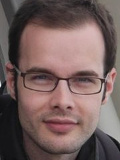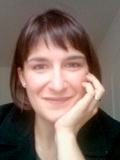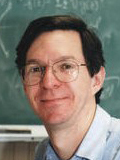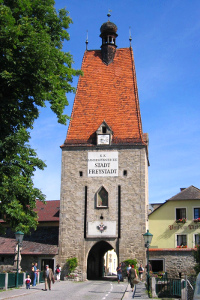Book of Abstracts
The full conference program can be downloaded here:
OPSFA2019_Program.pdf
The detailed schedule (including slides of some talks) can be
found on this website.
Invited Plenary Speakers

Thomas Bothner (Szegő Prize Lecture)
(King's College London, UK)
|

Peter Clarkson
(University of Kent, UK)
|

Christian Krattenthaler
(Universität Wien, Vienna, Austria)
|

Irina Nenciu
(University of Illinois at Chicago, USA)
|

Veronika Pillwein
(Johannes Kepler Universität, Linz, Austria)
|

Mikhail Sodin
(Tel Aviv University, Israel)
|

Alan Sokal
(New York University, USA)
|

Armin Straub
(University of South Alabama, USA)
|

Luc Vinet
(Université de Montréal, Canada)
|
Mini-Symposia
The contributed talks at OPSFA 15 will be organized in topical sessions,
called mini-symposia (MS). If you are interested to give a contributed
talk at the conference, please choose a mini-symposium from the below list
that fits best for your proposed topic and contact the respective
organizers. If none of the existing mini-symposia fits, you can submit your
talk to the general session for contributed talks;
for this purpose, send your proposal (title and abstract) to the
Conference Chair.
In any case, submissions should be sent until May 15, 2019.
Please note that there is no financial support for the MS organizers and no
budget to invite speakers. At least one of the MS organizers should be present
at the conference and chair the session. Ideally, the length of a
mini-symposium should not exceed 6 hours (i.e., 12 talks).
Abstract:
In this mini-symposium we would like to gather together experts on linear
special functions (e.g., hypergeometric) and nonlinear special functions
(e.g., Painlevé equations) to discuss different aspects of these
functions and recent advances in differential, difference and q-difference
equations. One aspect is the relation between orthogonal polynomials and the
Painlevé equations and the interest will be in discrete Painlevé
equations and special solutions of the Painlevé differential equations
that appear in the analysis of orthogonal polynomials.
Abstract:
In this mini-symposium, we will consider recent developments in the field of
hypergeometric functions, including Generalized Hypergeometric Functions,
Basic Hypergeometric Functions and Elliptic Hypergeometric Functions. Topics
will cover Summation formulas, Asymptotic expansions, Integrals and series,
etc.
Abstract:
In this MS we will consider different approaches and applications of
polynomials orthogonal with respect to inner products in weighted Sobolev
spaces. The topics to be covered are interpolation and Fourier projectors and
their applications to boundary value problems in one and several variables,
asymptotic properties of such polynomials, distribution of zeros, convergence
of Sobolev-Fourier expansions, Christoffel functions, moment problems,
differential operators with Sobolev orthogonal polynomials as
eigenfunctions, among others.
Abstract:
In this mini-symposium recent developments on multivariate special functions
related to Lie algebras, or root systems, will be considered. The topics
include but are not restricted to symmetric functions (such as Macdonald
polynomials, Macdonald-Koornwinder polynomials, etc.), integrable systems,
related physical and combinatorial models, connections to representation
theory, conformal field theory and character identities.
Abstract:
Multiple orthogonal polynomials are polynomials in one variable that satisfy
orthogonality relations with respect to $r$ measures. They appear in a natural
way in Hermite-Padé approximation, which is simultaneous rational
approximation to $r$ functions near infinity. The session will focus on special
families of multiple orthogonal polynomials, asymptotic behavior of the zeros,
asymptotic results and Riemann-Hilbert/steepest descent, applications in
numerical analysis, random matrices, determinantal point processes.
Abstract:
Computer algebra plays an increasingly important role in the investigation of
special functions. For large classes of special functions we now have strong
algorithmic theories. Software packages based on these theories successfully
solve interesting problems that are not accessible by other means and they
also routinely and reliably solve tedious subproblems that frequently arise in
day-to-day calculations. The purpose of this minisymposium is to join computer
algebra people interested in special functions with special functions people
interested in computer algebra, in order to share recent trends, new
techniques, and open problems at the intersection of these two areas.
| Organizer: |
Gergő Nemes
(Alfréd Rényi Institute of Mathematics, Budapest, Hungary) |
Abstract:
The main goal of the mini-symposium is to bring together researchers from all
over the world to discuss their most recent results in the field of asymptotic
analysis. The mini-symposium is intended to cover a broad range of subjects in
asymptotic analysis, including classical asymptotics, uniform asymptotics,
hyperasymptotics, resurgent function theory and exact WKB analysis.
Abstract:
Asymptotic behavior of sequences of polynomials can certainly be called a
classical problem. In particular, analytic properties of classical orthogonal
polynomials have attracted interest from late 19th century. Nevertheless, in
the last few decades the field has experienced several striking
developments. On one hand they were stimulated by applications: for instance,
many models of mathematical physics can be described in terms of sequences of
polynomials exhibiting non-standard type of orthogonality (multiple,
non-hermitian, Sobolev, matrix, to mention a few), and their asymptotic
analysis is the key to the study of large-scale phenomena. On the other hand,
new methods from potential theory, spectral theory and integrable systems have
been successfully developed. For this mini-symposium, we plan on bringing
together a range of experts in the asymptotic theory of orthogonal polynomials
and their generalizations, representing a wide scope of techniques and
applications from a modern perspective.
Abstract:
In this mini-symposium we aim to discuss recent advances in the field of
extremal polynomials, such as orthogonal and Chebyshev polynomials. New
developments for the associated operators (given by, e.g., Jacobi or CMV
matrices) as well as for continuous Schrödinger operators and canonical
systems are naturally included. We are particularly interested in situations
where almost periodicity occurs.
| Organizers: |
Peter Dragnev
(Purdue University Fort Wayne, Indiana, USA)
Edward Saff
(Vanderbilt University, Nashville, Tennessee, USA) |
Abstract:
Recent applications of Potential Theory to the theory of orthogonal
polynomials have allowed for significant advancement of the subject.
Methods, such as the Riemann-Hilbert approach, for investigating
asymptotic behavior of orthogonal polynomials include prominently the
equilibrium measure of a compact set in the complex plane. Another
important application of potential theory is to minimal energy problems
on the sphere and other manifolds. Seemingly different, both of these
areas of analysis explore the convergence properties of discrete
potentials. It is the intention of the minisymposium is to provide a
common bridge between them and allow for interchanging of ideas.
| Organizer: |
Ali Uncu
(Johannes Kepler University Linz, Austria) |
Abstract:
This mini-symposium is dedicated to discuss recent developments in the
study of q-series and its implications on the theory of partitions in a
broad perspective. We aim to welcome the representation of all the
techniques used in the field such as series manipulations, basic
hypergeometric transformations, modular forms, bijective combinatorics,
etc.
There will also be a general session for contributed talks that do not fit
into the scope of any of the minisymposia. If you are interested, please send
your proposed title and abstract
to Christoph
Koutschan.
Poster Session
There will be space for displaying posters during the conference. If you are
interested in submitting a poster, please send your proposal to the
Conference Chair.
Submissions should be sent until May 15, 2019.
Proceedings
The (post-) proceedings of this OPSFA conference will appear as a special
issue in Integral
Transforms and Special Functions. The guest editors are Walter van
Assche, Galina Filipuk, Christoph Koutschan, and Francisco Marcellán.
Submissions are done through the
online
system (choose "OPSFA15" when the system asks for the special issue).
The deadline for submissions is March 31, 2020.
Social Program
 |
|
On Sunday, July 21, a welcome reception will be held in the
Gemeindesaal (common hall) of the castle of Hagenberg, which is just a
5-minute walk from the hotel (see
the map).
Food and beverages will be provided starting at 19:00. It will be a great
opportunity to meet fellow colleagues and new friends in anticipation of a
scientifically productive week.
|
| |
|
|
 |
|
On Wednesday afternoon, there will be no talks. Instead, we offer an
exciting excursion to Freistadt, a small medieval town 20 km
north of Hagenberg. Buses will leave at 14:30 from the front of Hotel
Sommerhaus. Freistadt is known for its well-preserved walls, gates, and
towers, which were erected in the 14th and 15th centuries, and for
its 163
heritage buildings, which were built in gothic and renaissance
styles. Besides a guided tour through the delightful old town, we will
visit Freistädter
Brewery to learn about the art and history of beer brewing at the
Bier-Akademie. We end the evening with the conference dinner,
which takes place in the
restaurant Zum Goldenen
Hirschen (Böhmer Gasse 8-10, 4240 Freistadt). At the conclusion
of this eventful day, buses will bring the conference participants back to
the hotel in Hagenberg. The excursion and the dinner are both included in
the registration fee.
|
|
 |
|
|
|
| |
On Thursday evening, we will have an organ concert in the church of
Hagenberg, starting at 18:00. Christian Krattenthaler will give an
introduction to the fine Zanin organ (inaugurated in 2005) and play
great compositions
from several centuries. It will be a most wonderful treat for the ears.
|
From Monday through Friday, lunch will be served in the meeting room opposite
of the lecture halls. Here is the menu for the
week, including the menu for the conference dinner.
|












